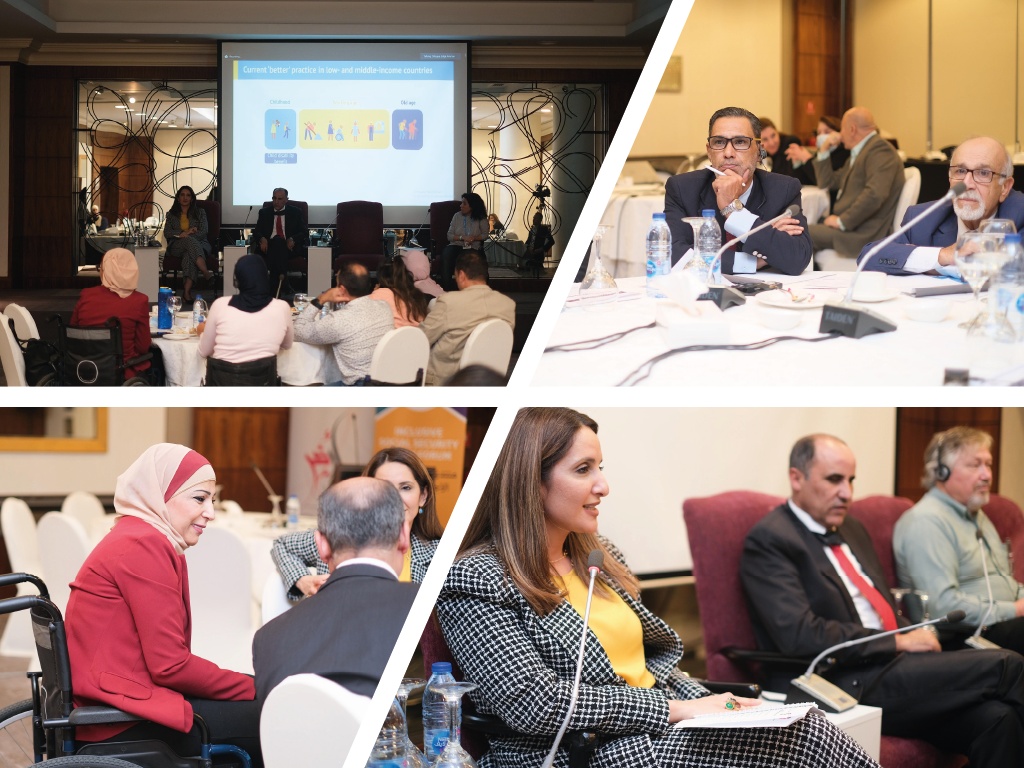The Arab Renaissance for Democracy and Development (ARDD) organized a workshop titled “From ink to work – the right of persons with disabilities to social protection”, to shed light on the rights of people with disabilities and on the challenges they face, such as lack of system that protects them, official authorities’ disregard of many of their rights , lack of initiatives and programs that provide services to them, and the inability of parents of children with disabilities to secure the services they need.
According to the Higher Council for the Rights of Persons with Disabilities, official statistics indicate that in Jordan, one out of every 10 individuals aged 5 and older has a disability, and is often discriminated against and excluded from health care, education, training and employment opportunities.
Director of independent living at the Supreme Council for the Rights of Persons with Disabilities Rasha Al-Adwan said: “There is a lack of coordination between the parties that provide social protection services, and an absence of a stimulating environment for people with disabilities, which makes it difficult to integrate them into societies. In addition, the interests of persons with disabilities are limited to some matters, instead of securing all their basic rights”.
Al-Adwan said the Kingdom has 32 care facility for people with disabilities, five of which are government run, two are voluntary and 27 are private.
She also pointed out that national strategies have been developed to move toward ensuring that people with disabilities attain their rights, such as the comprehensive education strategy for alternative care facility, and the inclusive education strategy.
Principal Social Policy Specialist at the Development Pathways Foundation Dr. Stephen Kidd said: “The situation does not differ globally, as there are additional burdens that persons with disabilities face, such as poverty, low income, expensive treatment costs and loss of job opportunities,”
He also said that 10 percent of people around the world have a disability, and about 25 percent of families have someone suffering from a disability.
“Families need additional income to care for their members, in addition to the Middle East’s need for a holistic system to support and protect persons with disabilities, he added, also blaming governments and donor countries for not providing financial allocations to set up a protection system for people with disabilities.,
The head of the legal unit of the Social Security Committee, Dr. Shaman Al-Majali, said “the Social Security Law issued in 1978 included four types of insurance: old age, work injuries, maternity and unemployment,” and expressed hope that these would be supplemented by providing health insurance for all citizens.
Al-Majali said that the government is responsible for providing care and social protection for people with disabilities who are unable to work, and to secure their rights on equal basis with others, stressing the need for clear legislation that serves people with disabilities.
UNRWA’s Social Services Officer Rahma Abdel Rahman said that the “in working with people with disabilities, UNRWA works toward both providing services to them and changing the perception of families who have people with disabilities, to which often stigma is attached.”
She pointed out that UNRWA’s priorities are to respond to the marginalized groups, to provide services for people with disabilities, to work with families to help them understand and choose the best manner to deal with people with disabilities, as well as to provide economic empowerment programs that help them secure an income.
The number of beneficiaries from UNRWA services is estimated at two and a half million, according to Abdel Rahman, who stressed the importance of providing “appropriate” job opportunities for people with disabilities in order to make them feel safe and secure.
Participants stressed that every member of the society may become disabled, so there is need for a real political will for change perceptions and legislation to ensure that people with disabilities attain their rights, are included in protection systems, and are enabled to work, while the society needs to find a way to set up a comprehensive protection system, investing in such system means investing in the prosperity of a nation.


